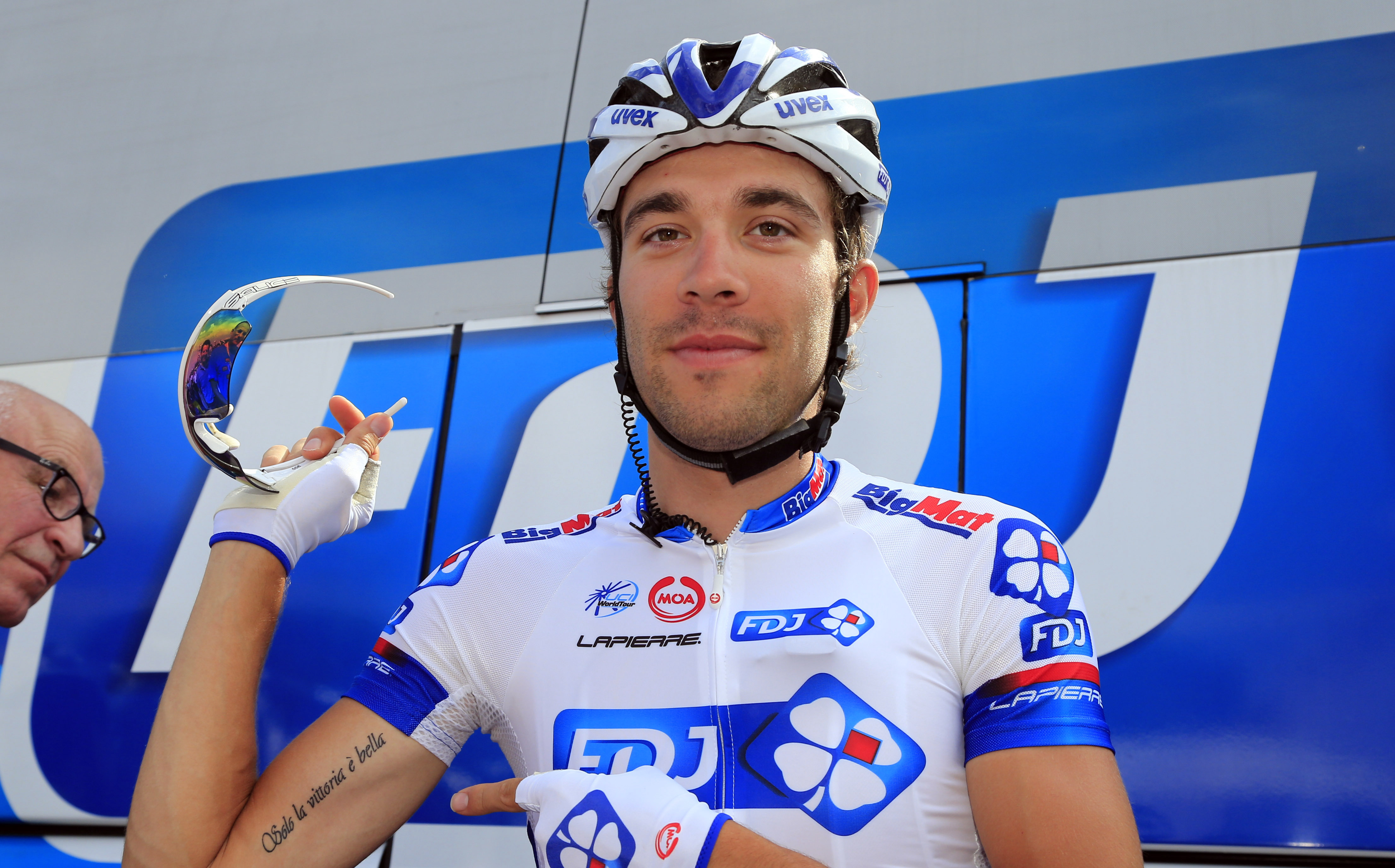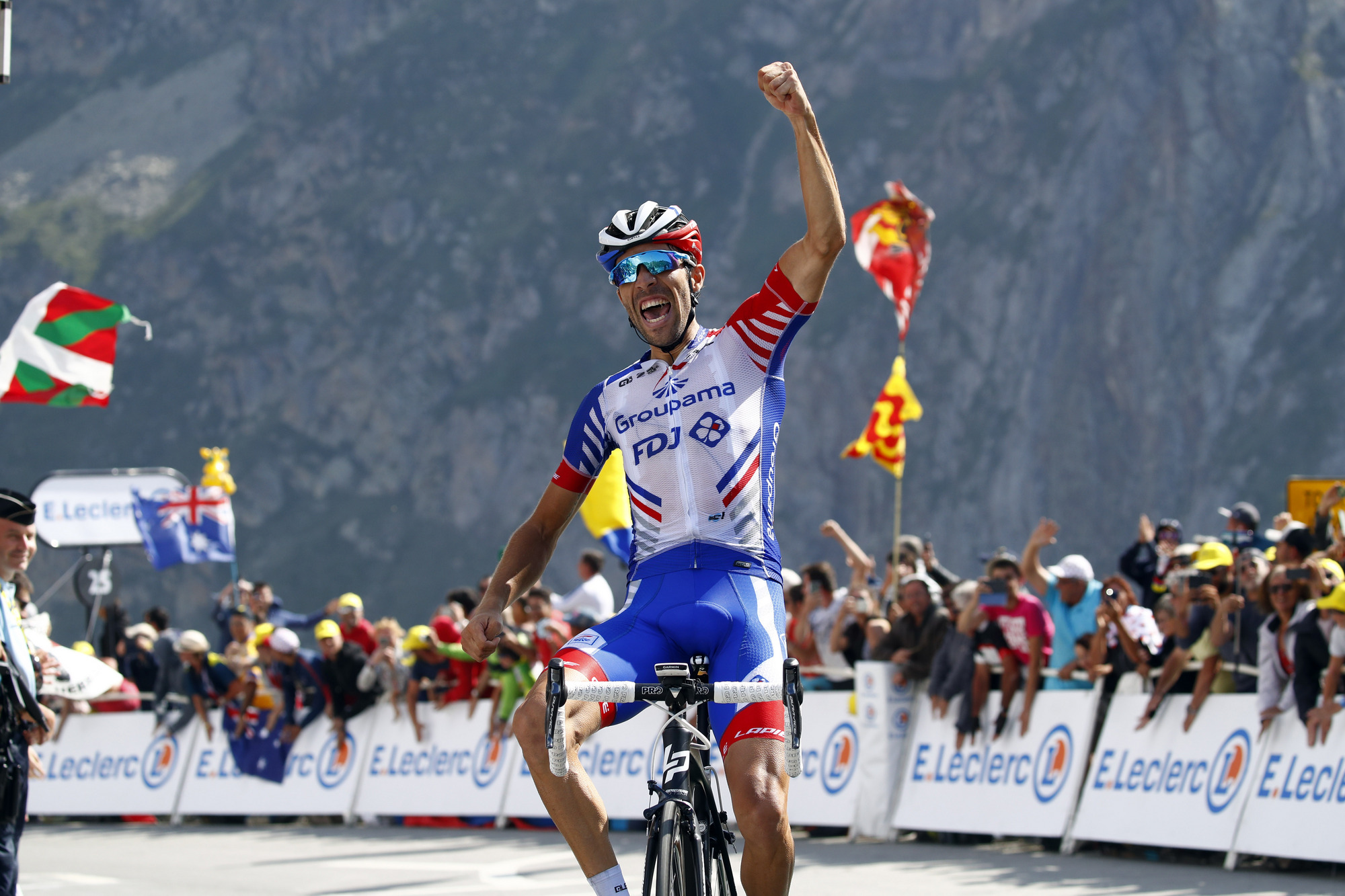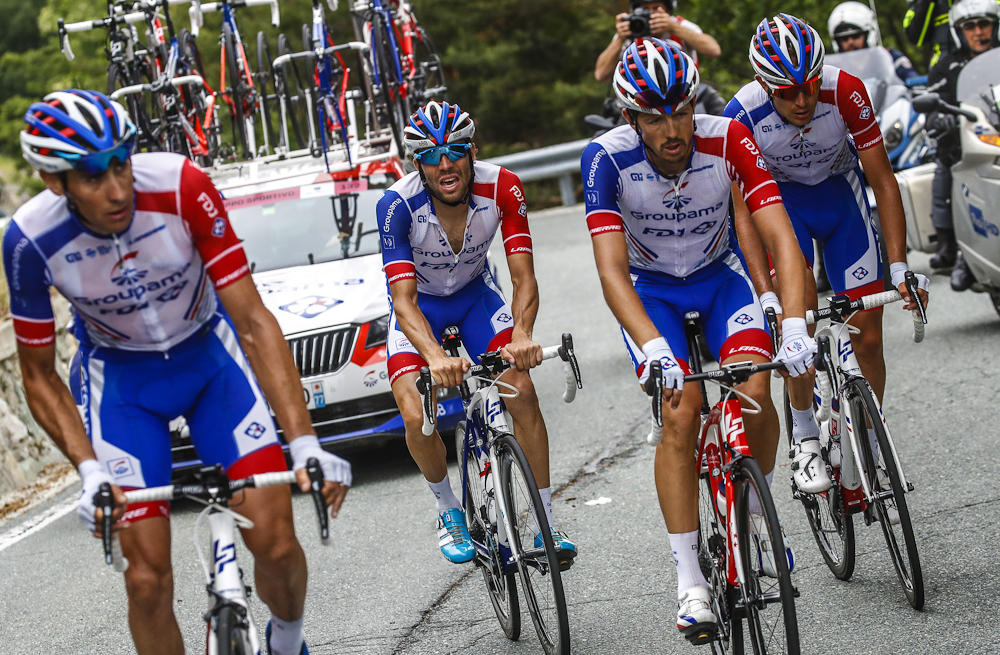Thibaut Pinot has done cycling a service by voicing his doubts
'Doping didn't ruin my career, but it often frustrated me' says retiring Frenchman

When Thibaut Pinot turned professional in 2010, he had every reason to be unsure about his prospects of fulfilling his potential as French cycling’s next champion in waiting. He had grown up watching cycling lurch from one doping scandal to the next, while French teams largely struggled, the seeming victims of a sport operating à deux vitesses.
Although the nascent biological passport offered the faint hope of levelling the playing field, the doubts persisted, even when Pinot had made his Tour de France debut and claimed a stylish victory in Porrentruy on stage 8.
Four days later, the 22-year-old was even more impressive in riding to second place on the summit finish at La Toussuire, but that night he lay awake until the small hours, confused and even troubled by what had happened.
"I didn't understand why I was so strong. I thought I had been doped, that I had been drinking from the wrong bottle," Pinot told L’Équipe on Thursday.
"I was the only one to follow [Chris] Froome when he attacked: not easily, but I was good. I didn't sleep that night because I told myself that it wasn't normal for me to be so strong at my age. It was starting to scare me. I had beaten the record up La Toussuire, which belonged to [Alberto] Contador."
There were a great many things to unpack in the long, candid interview Pinot accorded to L’Équipe on Thursday following the announcement of his retirement at the end of this season, but his comments on doping were instructive.
Pinot began his career understandably unsure whether it was possible for a rider to be successful without doping. Now, even though he came close to carrying off some of the greatest prizes of all, he ends his tenure uncertain as to whether he was always competing on the same terms as some of his rivals.
The latest race content, interviews, features, reviews and expert buying guides, direct to your inbox!
"It didn't ruin [my career], but it often frustrated me. Or put doubts in my mind," Pinot said of doping. "For the rest, I’ll never know. I always told myself that a doped guy might not train as hard as I did, and that I could compensate by going deeper in pain. That's how I reassured myself.
"After that, how many times did I finish second or third, knowing full well, or having strong suspicions, that in fact the victory was mine..."
Asked how he lived with those doubts, Pinot acknowledged that they were simply part of the deal: "If you accept to ride a bike, then…"
Cycling fans who grapple with their own disbelief can understand the sentiment. It's hard to explain.

Pinot, his Groupama-FDJ squad and the other members of the Movement for Credible Cycling (MPCC) were, in any case, adhering to stricter doping rules than many of their rivals. MPCC rules forbade the use of corticosteroids and Tramadol in competition long before UCI rules belatedly did so, while member teams also committed to forgo the use of ketones.
At the beginning of the 2021 season, Pinot voiced his concern at the use of corticosteroids in the professional peloton and his frustration at the ease with which riders could avail of therapeutic use exemptions. He was speaking from a position of knowledge, having reluctantly accepted an out-of-competition cortisone injection that winter to treat a back injury and being shocked by its effects.
It was rare indeed for an active rider at Pinot’s level to make such a public denouncement of doping, but the response from his colleagues was underwhelming.
"No, there was no support, no call, nobody," Pinot told L’Équipe on Thursday. "I thought that I would be a little more supported, especially from the guys on my team. That’s also why I can leave this milieu without regrets. I’ve often said what I thought. I wanted to help. I didn’t get any feedback. So now, let me live my life.
"I’m going to miss certain people, especially on the staff, but not the milieu."
Doubting what you see – and doubting even yourself – isn’t to denigrate cycling, but to try to better it
The silence from companions that followed Pinot’s comments on doping was a dreary echo of the response to his compatriot Gilles Delion’s warnings about EPO in the 1990s. "There were other riders who didn’t take anything, only they didn’t say anything because they were afraid of losing their place on their team, or losing a race because people rode against them in the finale," Delion told Cyclingnews in 2017.
When Delion crossed the Alps to visit that year’s Giro d’Italia in Valdengo, incidentally, it was perhaps only fitting that his first thought was to make a beeline for the FDJ bus to pass on his best wishes to Pinot.
Asked on Thursday why he had spoken out at all, Pinot’s response was simple. "Because I needed that. It felt good to say what I thought," he said. "Sometimes it's hard to keep everything to yourself."

It’s a shame that more of Pinot’s colleagues didn’t follow suit. His contemporary and compatriot Romain Bardet is among the few to have expressed similar misgivings about the vast grey areas that exist in cycling’s doping rules, but such interventions are still few and far between.
Most in cycling – riders, managers, sponsors, race organisers – prefer to avoid the topic altogether. Like when Pinot began his professional career in 2010, cycling’s default response to the doping issue is all too often one of silence or of indignation.
When Pinot hangs up his wheels at year’s end, he will be remembered mainly, of course, as French cycling’s romantic hero, a rider whose style won hearts and whose crushing defeats broke them. He will be recalled as an essentially humble and reserved man, blessed – or perhaps cursed – with an extravagant talent that almost carried him to Tour de France victory.
But Pinot should also be commended for doing his sport some service with his comments on doping. Doubting what you see – and doubting even yourself – isn’t to denigrate cycling, but to try to better it.

Barry Ryan was Head of Features at Cyclingnews. He has covered professional cycling since 2010, reporting from the Tour de France, Giro d’Italia and events from Argentina to Japan. His writing has appeared in The Independent, Procycling and Cycling Plus. He is the author of The Ascent: Sean Kelly, Stephen Roche and the Rise of Irish Cycling’s Golden Generation, published by Gill Books.